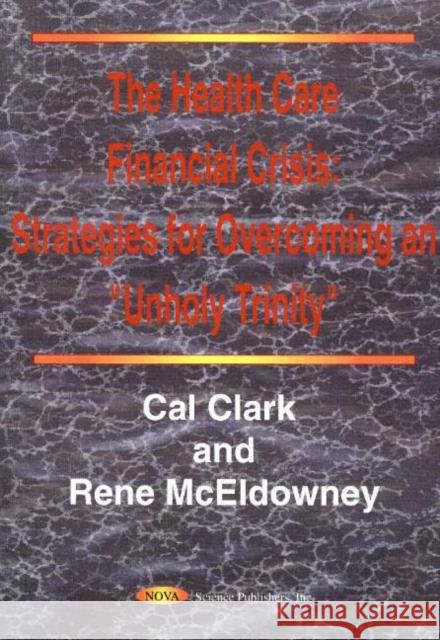Health Care Financial Crisis: Strategies for Overcoming an 'Unholy Trinity' » książka
Health Care Financial Crisis: Strategies for Overcoming an 'Unholy Trinity'
ISBN-13: 9781560729242 / Angielski / Twarda / 2001 / 147 str.
The key issues of the health care system are often conceptualized as involving three basic dimensions: 1) the quality of health care provided, 2) access to the health care system, and 3) the cost of health care. Good systems should provide high quality medicine to all of the population requiring health care at affordable prices. Such a system, somewhat fancifully, might be praised for having achieved a -holy trinity.- Such praise, unfortunately, is little to be found in the contemporary world. Over the last two decades, health costs have escalated steadily and in some cases dramatically throughout advanced industrial societies where quality health care had been available on a fairly wide basis. Moreover, aging populations throughout the developed world mean that there will be major increases in demands for the most costly health care services. The result has been that access and/or quality have eroded in many, if not most, nations. That is, the relationships among the three basic dimensions now constitute what Benjamin Cohen (in his analysis of international monetary relations) has called an -unholy trinity- in that improvements (or even attempted improvements) along one dimension will almost inevitably provoke problems in terms of one or both of the others. This book presents studies of two distinct types of reform that have been implemented to reduce the -trade offs- arising from the -unholy trinity.- The first focuses upon attempts to reorganize existing institutions in order to make them more effective and cost-efficient. The second considers the move toward -evaluation research, - that is, more critically evaluating health care treatments and outcomes to make sure that treatments are effective and cost-efficient.











